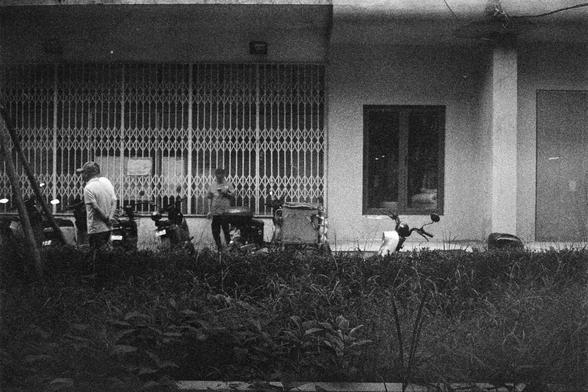2026-01-13 07:17:00
#Blakes7 Series D, Episode 05 - Animals
SLAVE: I can find no trace of one, sir.
[On planet's surface, Dayna looks around and sees an animal following her]
TARRANT: Dayna.
https://blake.torpidity.net/m/405/13
2025-12-10 19:35:27
A post from the archive 📫:
Invalid Access to memory location in KUDU App Services
https://www.poppastring.com/blog/invalid-access-to-memory-location-in-kudu-app-services
2025-12-11 17:33:20
Announced pick for No. 2 at NSA won’t get the job as another candidate surfaces
https://therecord.media/announced-nsa-deputy-director-pick-joe-francescon-not-taking-job
2025-11-13 00:30:02
Moody Urbanity - Relations V 🪢
情绪化城市 - 关系 V 🪢
📷 Minolta Hi-Matic AF
🎞️ Shanghai GP3 400 Pan
#filmphotography #Photography #blackandwhite
2025-10-30 21:25:56
SEC filing: Meta says it is no longer facing a CFPB investigation over advertising for financial services on its platforms (Evan Weinberger/Bloomberg Law)
https://news.bloomberglaw.com/banking-law/meta-escapes-cfpb-probe-into-financial-se…
2025-11-04 13:25:46
Australia plans to introduce legislation this week requiring streamers with 1M Australian subscribers to spend 10% of their local expenditure on local content (Jake Evans/ABC)
https://www.abc.net.au/news/2025-11-04/streaming-serv…
2025-12-08 15:07:26
🇺🇦 Auf radioeins läuft...
Getdown Services:
🎵 I'm Not Feeling It
#NowPlaying #GetdownServices
https://getdownservices.bandcamp.com/track/im-not-feeling-it
https://open.spotify.com/track/7xvlfxgCGYonQklS547AgR
2025-12-11 15:28:38
Announced pick for No. 2 at NSA won’t get the job as another candidate surfaces https://therecord.media/announced-nsa-deputy-director-pick-joe-francescon-not-taking-job
2026-01-09 18:36:34
It’s quite possible there’s not one thing that will stop Trump: pictures of dead US Service men and women.
I have a feeling that will change things really quickly.
#uspolitics #trump
2025-10-28 16:25:43
E.W. Scripps agrees to sell its Indianapolis ABC affiliate station WRTV to Circle City Broadcasting for $83M; Scripps agreed to sell WFTX for $40M in September (Lucas Manfredi/The Wrap)
https://www.thewrap.com/ew-scripps-wrtv-circle-city-broadcasting-sale/








